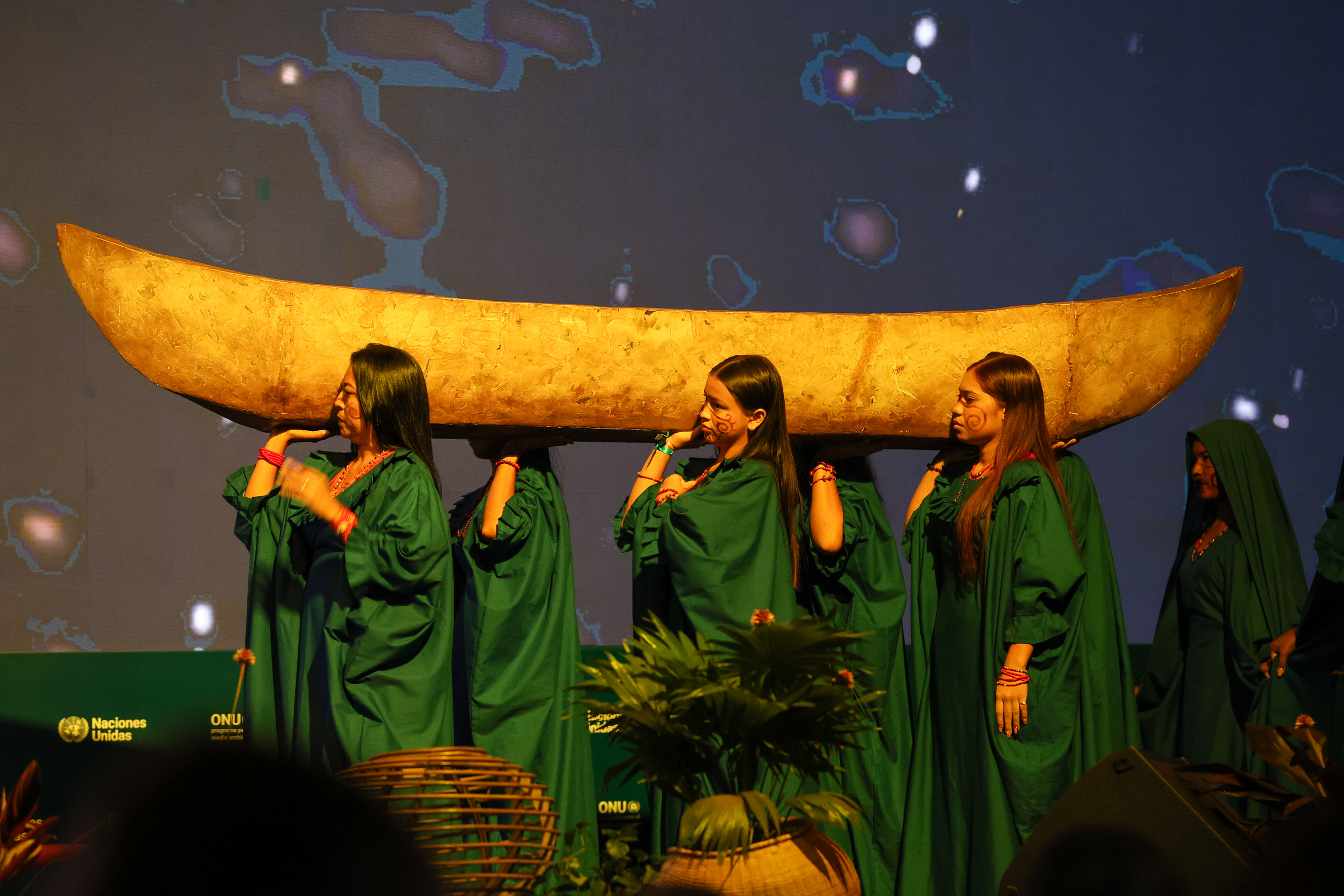 IISD/ENB | Mike Muzurakis
IISD/ENB | Mike Muzurakis
Statement on the International Day of the World’s Indigenous Peoples
Statement by Astrid Schomaker, Executive Secretary of the Convention on Biological Diversity, on the International Day of the World’s Indigenous Peoples (9 August 2025)
Theme: Indigenous Peoples and AI: Defending Rights, Shaping Futures
Today, we join the global celebration of the unique contributions and traditional knowledge of Indigenous Peoples, who have safeguarded the world’s biodiversity for millennia.
Their knowledge and cultures, rooted in deep cultural and spiritual connections with land, waters, and territories, have sustained ecosystems and communities alike. They are key to the implementation of the Kunming-Montreal Global Biodiversity Framework.
This year’s theme of the International Day of the World’s Indigenous Peoples invites us to reflect on how technology can support traditional knowledge systems.
Artificial Intelligence is transforming how knowledge is generated and applied. For Indigenous Peoples, this brings both challenges and opportunities.
Inadequate applications of AI can undermine the principles that safeguard traditional knowledge, including consent, control, and data sovereignty.
But appropriate safeguards can ensure that the rights of Indigenous Peoples over their knowledge are respected and given due consideration in the use of AI.
If those requirements are met, AI tools can support the respectful treatment of traditional knowledge, where appropriate, to help devise solutions that address biodiversity loss, climate change, and other environmental challenges.
Global efforts to halt and reverse biodiversity loss can benefit from technological progress. But we must always place Indigenous Peoples’ rights and leadership at the heart of every discussion and action.
A new, promising chapter began at COP 16 in Cali, Colombia, when Parties to the CBD adopted a landmark decision establishing the Subsidiary Body on Article 8(j) and approving a new Programme of Work on the same.
This will further elevate the role and contributions of Indigenous Peoples as rights-holders, knowledge-holders and essential stewards of biodiversity. Today, and every day, we must continue to support them.
Artificial Intelligence, done right, can be a powerful ally in this endeavour.